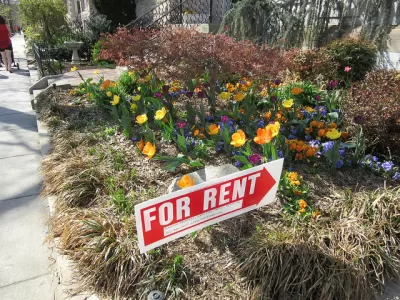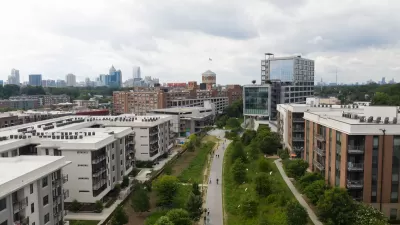Census data reveal a growing number of suburbs are home to a majority of renters. The data challenges the "very definition of suburban living," according to this article.

"Renters are now the majority in 103 suburbs that were previously homeowner territory 10 years ago," reports Adrian Papa, citing Census data analysis by RentCafé.
The nation’s 50 largest metros gained 4.7 million people since 2010, according to the article—and 79 percent of the new population rent their homes.
"Today, about 21 million people rent a suburban home in the 50 largest U.S. metros — 3.7 million more than 10 years ago. What’s more, between 2010 and 2019, the number of suburban renters grew by 22% — a number that dwarfs the 3% increase in suburban homeowners during the same period."
In 2020, 103 suburbs were majority renter, with 57 more suburbs likely to make the switch in the next five years. The article also breaks down the data by region, finding Washington, D.C. leading the way with 14 suburbs newly majority renter, followed by Miami with 13 and Los Angeles with 12.
FULL STORY: Picket Fences for Rent: 100+ Suburbs Transitioned to Majority Renters in Last Decade

Maui's Vacation Rental Debate Turns Ugly
Verbal attacks, misinformation campaigns and fistfights plague a high-stakes debate to convert thousands of vacation rentals into long-term housing.

Planetizen Federal Action Tracker
A weekly monitor of how Trump’s orders and actions are impacting planners and planning in America.

In Urban Planning, AI Prompting Could be the New Design Thinking
Creativity has long been key to great urban design. What if we see AI as our new creative partner?

King County Supportive Housing Program Offers Hope for Unhoused Residents
The county is taking a ‘Housing First’ approach that prioritizes getting people into housing, then offering wraparound supportive services.

Researchers Use AI to Get Clearer Picture of US Housing
Analysts are using artificial intelligence to supercharge their research by allowing them to comb through data faster. Though these AI tools can be error prone, they save time and housing researchers are optimistic about the future.

Making Shared Micromobility More Inclusive
Cities and shared mobility system operators can do more to include people with disabilities in planning and operations, per a new report.
Urban Design for Planners 1: Software Tools
This six-course series explores essential urban design concepts using open source software and equips planners with the tools they need to participate fully in the urban design process.
Planning for Universal Design
Learn the tools for implementing Universal Design in planning regulations.
planning NEXT
Appalachian Highlands Housing Partners
Mpact (founded as Rail~Volution)
City of Camden Redevelopment Agency
City of Astoria
City of Portland
City of Laramie





























